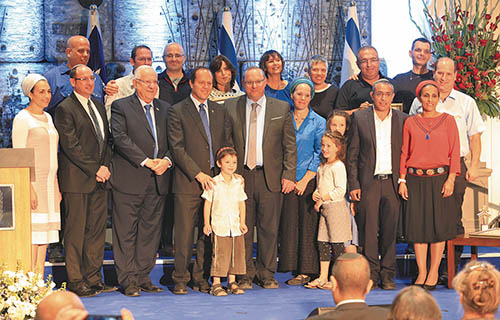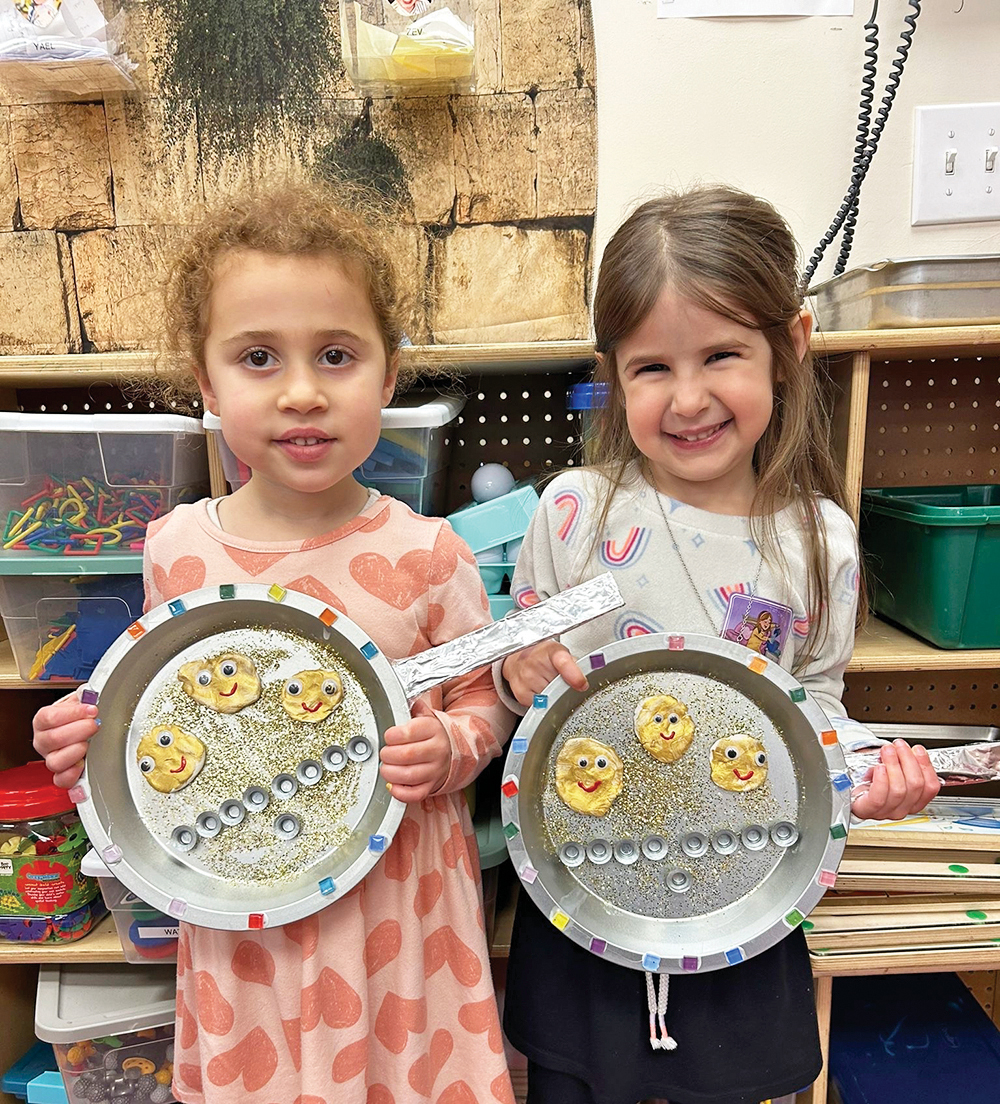




Unity Day is the brainchild of Jerusalem’s Mayor Nir Barkat, as a natural offshoot of the incredible Jewish unity, achdut, which came about during the 18 days of suspense as the IDF launched Operation Brother’s Keeper to recover the kidnapped teenagers Naftali Frankel, Gilad Sha’er, and Eyal Yifrach. Previous arguments and frictions between different sects of Jews, such as IDF service for Haredim, were dropped overnight as an entire people hoped for the recovery of three innocent teens. When the sad news came in that their bodies had been found, Jewish people of all stripes, shades and sizes, in Israel and the Diaspora, joined together in mourning. I witnessed this; I attended the mass funeral of Naftali, Gilad and Eyal in Modi’in—I trekked to the funeral and spoke with many different Jews whom I wouldn’t have ever crossed paths with otherwise. Barkat saw the achdut which came about from the suffering and tragedy, and wanted to actualize this on a daily basis, though from positive perspectives. With the help of the Gesher organization, Jews from 25 different countries participated in Unity Day activities, bringing themselves together with other, very different, brethren of theirs.
“I don’t know anyone from Am Yisrael (the Jewish nation), left- or right-wing, religious or secular, who didn’t connect to the tragedies of the three families,” said Mayor Barkat. “Unity Day started in Jerusalem, described as ‘Ir Shechubra La Yachdav’ (a city that unites those within her). All denominations of Am Yisrael are here. We live the achdut, and, today, we share it with the world.”
“The Jerusalem Unity Prize and Unity Day allow us to salute the togetherness which exists in society,” said President of Israel Reuven Rivlin, “[this is] both out of choice and out of tragedy.”
Ian Calno, the South African-born head of Gesher in the United Kingdom, came on a one-day trip to the Holy Land to take in the awe-inspiring sight of over 850,000 Israelis commemorating and celebrating Unity Day, to brainstorm on ways to expand the observance of Israel’s newest holiday in his own country.
“In the future, we see Unity Day, which has become part of the Jewish calendar, being integrated into the curriculums of the Jewish schools in the UK, turning into a discussion topic in our communities, and becoming part of the general cohesion of the Jewish people as a whole,” Calno said, adding, “It’s so inspiring to see that so much energy has come from such a tragedy.”
The highlight of Israel’s Unity Day is most certainly the annual presentation of the Jerusalem Unity Prize. Four individuals or organizations are chosen from a wide pool of many worthy candidates by a panel including President Rivlin, Mayor Barkat, Jewish Agency head Natan Sharansky, former Chief of Staff of the IDF Lt. General (res.) Benny Ganz, former Chief Rabbi of the United Kingdom Lord Jonathan Sacks, and representatives of the families of the three boys who tragically started it all. Sharansky feels especially connected to Unity Day and the Unity Prize, given the achdut which came about during his nine-year imprisonment in the USSR, when Jews around the world rallied with his wife Avital to push for his release.
“Unity Day has a very special meaning for me, because when I was an activist in the Soviet Union and then imprisoned, I felt very strongly that, in struggles, we are all one people—the Jews of the Soviet Union, the Jews of America, the Jews of Israel, are one and the same. It was clear to me then that we need to speak with one voice. I know personally how important it is for the Jewish people to be one,” said Sharansky.
This year’s Unity Prize winners were four Israeli and Israel-based international organizations whom the panel believe truly exemplify national achdut. First off was the winner of the Local category, the HaPoel Katamon Football Club. Touted as Jerusalem soccer’s New York Mets, this team started as an alternative for those who were less than fans of Jerusalem’s hometown favorite, Beitar Jerusalem FC. However, their family- and community-oriented nature gave HaPoel the opportunity to institute outreach programs. They’ve started weekly programs where HaPoel players teach over a thousand young Israeli Jews and Muslims skills to better play the country’s most popular sport. This is also especially helpful for the residents of Israel’s capital who live in an amazingly modern and ancient city, lacking for nothing except open park space; with the help of HaPoel FC, young Jerusalemites now have where to play, and even have the unique opportunity of practicing and training with professional players.
Marcus Hershkowitz, head of community outreach for the football club, told The Jewish Link of New Jersey that, for him, the most unique part of HaPoel’s youth outreach program is seeing how quickly barriers break down between young Israelis as soon as they connect through the common denominator of soccer.
Next up is one of the two winners in the National category, Kesher Yehudi. Living up to its name, Kesher Yehudi connects Israeli Jews of different ideologies by a common denominator, not unlike HaPoel FC. However, Kesher HaYehudi’s uniting factor predates even cuju, the ancient Chinese version of soccer played as early as the Han Dynasty, by at least a thousand years: they put Jews of differing ideologies together in chavruta, to learn Torah together.
Kesher HaYehudi’s latest project involves 10 different secular mechinot (army preparatory schools) throughout Israel, each specifically for soldiers training to complete officers’ courses upon entering the army. Twice every month, they bring yeshiva students from Yeshivat Chevron and students from Bais Yaakov seminaries to speak to their less-religious counterparts, to bring Torah into the lives of Israel’s future army commanders. The ensuing dialogue also connects Jews of very different ideologies, who would never have crossed paths otherwise. Kesher HaYehudi plans on introducing this program to three more schools before the end of the year.
The other winner for the National category of the Jerusalem Unity Prize is three organizations, one of which requires no introduction to American Jewry, and the other two are less familiar, and they are the youth organizations Bnei Akiva, No’ar Ha’Oved V’Halomed, and D’ror Yisrael. These three, longstanding institutions for distinctly different types of Israeli youth (Bnei Akiva for more traditional and observant Jews, and No’ar Ha’Oved V’Halomed and D’ror Yisrael for the more open-minded and secular children of the kibbutzim), operated separately for decades before trying a joint activity in Tel Aviv’s Rabin Square four years ago, and, according to Ro’ey Yesod, head coordinator of Ha’Oved V’Halomed, the results were spectacular.
“Bnei Akiva put out their hand in achdut, and we put out ours, and the results have been just incredible,” Yesod said.
Last but definitely not least is Shutafut B’Yachad, which, according to its organizers, is best achieved through technology. Shutafut B’Yachad uses modern technology to connect Jews of different stripes together, from distant locations in Israel and the Diaspora, to encourage discussion and building bridges. Using online video chats and messaging, they connect students and classes from sister schools around the world, so that students can be exposed to Jews of very different backgrounds.
The organization tells the story of an unnamed young man who made aliyah from the United States in 11th grade, where he had been an active participant in Shutafut B’Yachad beforehand, and joined the IDF to serve in Operation Protective Edge. He was injured during his service, and was hospitalized far away from his family. Aside from his adopted Israeli family, who was constantly at his bedside, all of his friends from Shutafut B’Yachad came together to visit him several times during his hospitalization. The bond that they had built around discussion and common cultural denominators kept them together for years, and these young men and women traveled to visit their friend when he was in need—they became his mishpacha, his family.
At the event, the families of the three murdered teens indicated bittersweet pride at the unity that has come about in the past two years. “Our hearts hurt from the loss of our boys,” said Bat Galim Shaer, “but I feel that Gil’ad is looking down on us and smiling. There’s nowhere that people care about one another like in Israel.”
“I think there’s more impact this year,” said Avi Frankel, father of Naftali. “We see more activities, and [Unity Day] is more in the media. People around the world are connecting to it, and they’re the ones making it so successful. We’re happy, we know that we’re doing the right thing, giving back to the public what they gave us during those days two years ago, the strength of the achdut which we got from others. Now, we proudly reflect it back on the Jewish people around the world.”
Moving forward, as Unity Day becomes an annual occurrence, and Israel’s latest addition to the Jewish calendar begins to give new meaning to the ancient word achdut, we all should look into ourselves and contemplate what we can bring to our national table. Or, as Rabbi Haim Meir Drukman, religious advisor to Bnei Akiva Israel, said in an exclusive interview with JLNJ: “Today is Yom Ha’Achdut, when we remember that we’re one family and we love each other. Tomorrow is also Yom Ha’Achdut—every day we are all mishpacha (family).”
Author’s note: Yair Keller contributed to this report. Many of the quotes and interviews have been translated from their original Hebrew by JLNJ Israel for the convenience of our readers, with an aim toward the most authentic interpretation whenever possible.
By Tzvi Silver/JLNJ Israel













